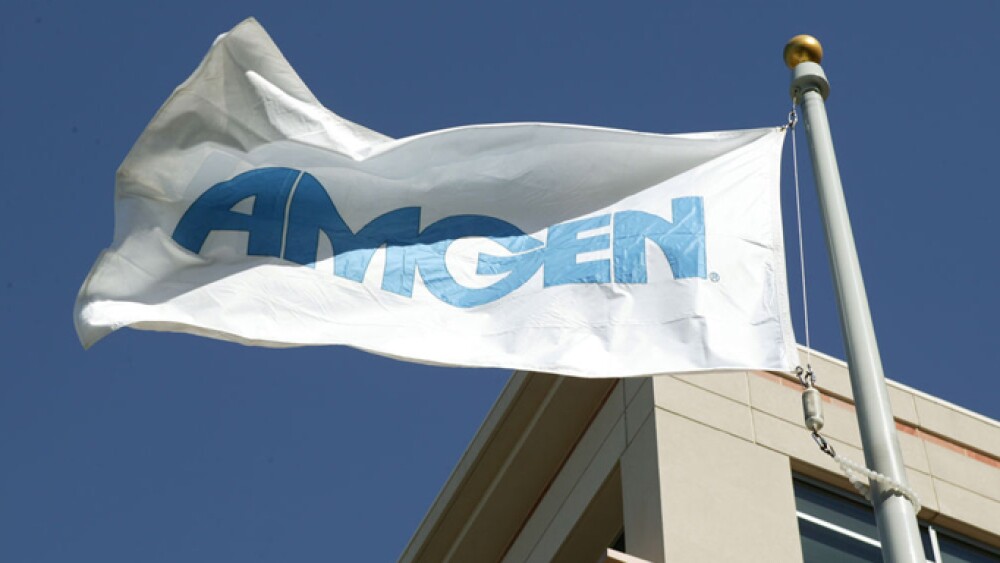April 28, 2015
By Riley McDermid and Mark Terry, BioSpace.com Breaking News Staff
Thousand Oaks, Calif.-based Amgen said Monday that it has begun hiring research scientists and production engineers in Boston as part of a 100-person staff expansion that will greatly increase its presence in Cambridge, Mass., and South San Francisco.
The company did not spell out its plans for increased hiring in South San Francisco, where it maintains a Bay Area presence. In March, Amgen said it would shutter a SSF plant for subsidiary Onyx Pharmaceuticals, Inc..
The Boston Globe reported Amgen plans to hire another 75 people for its Kendall Square site in Cambridge, boosting its roster to 275 total workers. Amgen also has about 70 employees in Woburn, Mass., where it has a production facility. Its other large New England production site is in West Greenwich, R.I., where it manufactures rheumatoid arthritis drug Enbrel.
The hiring is a nice surprise after months of downsizing. In October, the world’s third largest biotech said it will use the money it saves from cutting 20 percent of its workforce, or 4,000 jobs, to double down on research, new products and the rollout of its existing blockbuster drug pipeline.
Amgen will improve margin costs by 15 percent by cutting an additional 1,100 jobs to the 2,900 it announced it would axe last summer, the company told analysts at the time. The new corporate model will see a total enterprise annual savings of up to $1.5 billion by 2018, said Amgen in a statement.
Amgen may need the extra help. On April 27, the U.S. Food and Drug Administration (FDA) advisory committee has raised a number of concerns about Amgen(AMGN)’s cancer-killing virus talimogene laherparepvec (T-Vec) in an internal review released today, including the number of participants who dropped out of the trial. The FDA will vote this Wednesday April 29 on whether T-Vec should receive approval to treat melanoma.
The FDA had concerns about both the study design and results. The report stated, “These concerns include the appropriateness of the study control; differential outcome assessments in the two arms of the study; the reliability of response assessments; the meaningfulness of the primary endpoint of durable response rate; the absence of a clear effect on overall survival; and limited evidence that the product has a systemic effect.”
Amgen’s therapeutic, talimogene laherparepvec, is described as “an attenuated replication-competent herpes simplex virus type 1 (HSV-1) that can constitutively express a biologically active form of human GM-CSF.”
The FDA expressed concern about the 278 participants who dropped out of the study, questioning whether the investigators biased their decisions in favor of positive outcomes. The study stated, “Subject or investigator bias regarding the relative benefit of talimogene laherparepvec and the control may have influenced the determination that it was in the best interest of the subject to stop treatment or to be given other therapy for melanoma.”
The FDA committee also questioned whether the systemic response observed was direct evidence of the drug’s effect. It also questioned whether the investigator bias caused the scientists to cherry-pick data to such an extent that it warped the final results concerning overall survival. “Thus the survival results are not robust, and the conduct of the study with regard to a relatively small number of subjects, potentially subject to investigator bias, could have had substantial impact on the results of the survival analysis.”
On Feb. 12, 2015, BioSpace covered Amgen’s biologics license application (BLA). Amgen.
Amgen filed the BLA based on data from a Phase III study of T-Vec called OPTiM. T-Vec “demonstrated a significant extension in durable response rates (DDR),” which was its primary endpoint, as well as a 4.4 month overall survival (OS) as a secondary endpoint. The OS was considered to be clinically significant, however.
“Clinically, I think that the 4.4-month difference [in survival] is important for our patients,” said Robert Andtbacka, a surgeon and investigator with Intermountain Healthcare and Huntsman Cancer Institute at the 2014 American Society of Clinical Oncology (ASCO) annual meeting. “However, I think it’s also important to recognize that this is a secondary endpoint, and the study clearly was not powered to look at a small difference, such as this.”
The Cellular, Tissue and Gene Therapies Advisory Committee and the Oncologic Drugs Advisory Committee, however, after poking holes in Amgen’s study methods and conclusions, said, “The study results for the primary endpoint are statistically robust. Therefore, FDA believes that any bias that might have occurred in the study conduct would not change the study results sufficiently to alter the overall interpretation that talimogene laherparepvec had an effect on durable response rate.”
As Boston Booms, What’s Next for Biotech?
After a week that saw Boston biotechs vastly increasing their rosters and a new IBM health unit installed, BioSpace wants your predictions for what Boston can expect in the next year. Get out your crystal ball and tell us what you think is most likely in the cards for Genetown!





